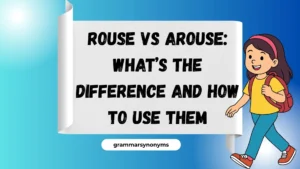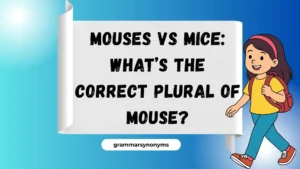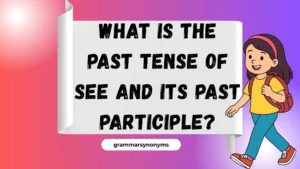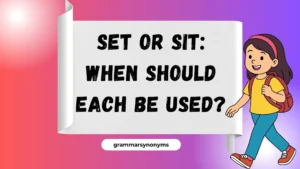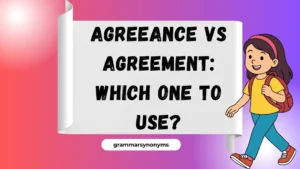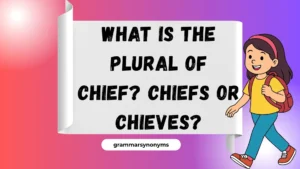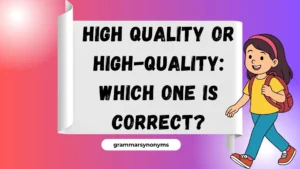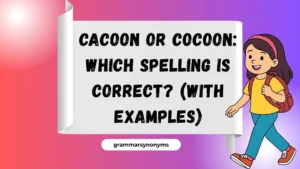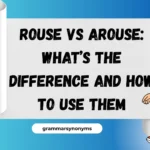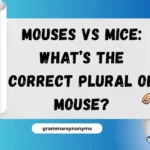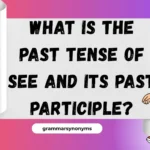When crafting a message, the way we ask for something can set the tone for the entire conversation. Whether it’s for a professional email, a friendly request, or a formal inquiry, finding the right words is key to ensuring the message feels both polite and heartfelt. Sometimes, saying “please provide” can sound too abrupt or robotic.
In those moments, it’s helpful to have a range of alternatives that can express care and consideration while making the message sound warmer and more personal. Below are 30 alternative ways to say “please provide,” each designed to help you communicate with empathy and thoughtfulness.
What Does “Please Provide” Mean?
“Please provide” is a polite way of requesting something from someone, typically in a formal or professional context. It’s used to ask for specific information, assistance, or action. The phrase is straightforward, but there are times when it can feel impersonal or too direct. By exploring alternatives, you can adjust your language to better fit the tone you want to set, whether it’s more casual or formal.
Is It Professional/Polite to Say “Please Provide”?
Yes, “please provide” is both professional and polite in most contexts. However, there are instances where it may come off as too stiff, especially if you want to convey more warmth or friendliness. Using alternative expressions can help make your request feel more engaging, fostering better communication in both personal and professional settings.
Pros and Cons of Saying “Please Provide”
Pros:
- Direct and clear.
- Polite and professional.
- Works well in formal and business contexts.
Cons:
- Can sound cold or distant.
- Doesn’t leave much room for nuance.
- May feel impersonal in more casual settings.
Synonyms For “Please Provide”
- Kindly Provide
- Could You Please Provide
- Would You Be Able to Provide
- Please Supply
- May I Have
- I Would Appreciate If You Could Provide
- Could You Share
- Would You Kindly Provide
- I’d Be Grateful If You Could Provide
- Do You Mind Providing
- Could You Make Available
- Please Deliver
- Can You Offer
- Could You Furnish
- May I Request
- Would You Happen to Have
- Could You Send
- Can I Get
- I’d Appreciate It If You Could Provide
- Would You Mind Providing
- If Possible, Please Provide
- I’d Be Grateful If You Could Share
- Could You Let Me Have
- I Would Love to Receive
- Please Forward Me
- I Would Be Thankful If You Could Send
- May I Obtain
- Do You Happen to Have
- Would It Be Alright If You Shared
- Please Pass Along
1. Kindly Share
Definition: A gentle way to ask for something.
Explanation: This phrase feels friendly but still maintains politeness. It’s often used when you want the other person to feel comfortable in sharing information or resources.
Scenario Example: “Could you kindly share the report with me when you have a moment?”
Best Use: Email requests, work correspondence.
Tone: Friendly, warm.
Additional Notes: A slightly more relaxed version of “please provide,” suitable for both professional and personal communication.
2. Would You Be Able to Provide
Definition: A polite, indirect way to ask for something.
Explanation: It softens the request, making it sound less demanding. It’s often used when you want to show respect for the other person’s time and effort.
Scenario Example: “Would you be able to provide the details of the meeting by tomorrow?”
Best Use: Professional settings, customer service.
Tone: Respectful, considerate.
Additional Notes: Ideal when you want to come across as especially considerate and mindful of the recipient’s availability.
3. Could You Please Supply
Definition: A polite request for someone to give something.
Explanation: Similar to “please provide,” but “supply” gives a bit more of a formal touch. It works well for both professional and academic contexts.
Scenario Example: “Could you please supply the requested data by Friday?”
Best Use: Formal emails, professional requests.
Tone: Courteous, professional.
Additional Notes: Slightly more formal than “please provide” but still polite and clear.
4. Would You Kindly Supply
Definition: An even more polite version of the previous phrase.
Explanation: It’s an extra-courteous version of “could you please supply,” emphasizing kindness and respect.
Scenario Example: “Would you kindly supply the documents at your earliest convenience?”
Best Use: Formal or high-stakes business communication.
Tone: Extra polite, formal.
Additional Notes: Best for situations where showing respect is especially important, such as when requesting sensitive or important information.
5. Can You Share
Definition: A casual and straightforward way to ask for something.
Explanation: Less formal than “please provide,” this phrase is perfect for more relaxed environments or among colleagues.
Scenario Example: “Can you share the link to the presentation?”
Best Use: Informal settings, workplace chats.
Tone: Casual, conversational.
Additional Notes: Best for friendly requests where you want to sound approachable without being too formal.
6. Please Forward
Definition: A more directive request asking someone to send or pass something along.
Explanation: It suggests a simple action like sending something over, often used in professional emails.
Scenario Example: “Please forward the meeting notes to the entire team.”
Best Use: Emails, follow-up requests.
Tone: Neutral, direct.
Additional Notes: Works well for quick, straightforward requests that require minimal explanation.
7. May I Have
Definition: A polite and slightly formal way to ask for something.
Explanation: This is a softer, more respectful approach to requesting something from someone, making the exchange feel more personal.
Scenario Example: “May I have your feedback on the project?”
Best Use: When requesting sensitive information or feedback.
Tone: Polite, respectful.
Additional Notes: It conveys politeness without being overly formal.
8. Would You Mind Sharing
Definition: A considerate request that acknowledges the other person’s willingness.
Explanation: This phrase recognizes that the other person’s time or resources are being asked for, so it softens the request.
Scenario Example: “Would you mind sharing the file with me when you get a chance?”
Best Use: Casual conversations, asking for small favors.
Tone: Considerate, polite.
Additional Notes: Ideal for maintaining a friendly and warm tone.
9. Could You Kindly Share
Definition: A polite, formal way to ask for something.
Explanation: This is another alternative to “please provide” but with an extra level of courtesy.
Scenario Example: “Could you kindly share your availability for the next meeting?”
Best Use: Business correspondence, professional settings.
Tone: Formal, respectful.
Additional Notes: Excellent for emails where you want to show a high level of respect.
10. I Would Appreciate It If You Could Share
Definition: A more polite and grateful way of asking for something.
Explanation: It combines the request with a thank-you in advance, making it sound more appreciative.
Scenario Example: “I would appreciate it if you could share the data with me by the end of the day.”
Best Use: Professional and personal situations.
Tone: Appreciative, thoughtful.
Additional Notes: It conveys gratitude and consideration in advance, which can foster positive relationships.
11. Would It Be Possible to Provide
Definition: A polite way to ask for something, showing that you are open to the possibility.
Explanation: This phrase introduces a level of flexibility and respect for the other person’s ability to fulfill the request.
Scenario Example: “Would it be possible to provide an update on the status of the project?”
Best Use: When flexibility is important, such as in a business negotiation.
Tone: Respectful, considerate.
Additional Notes: Softens the request, making it sound less demanding.
12. Could You Please Share
Definition: A polite way to ask for something, using “please” to enhance the request’s tone.
Explanation: Similar to “kindly share,” but it keeps the request direct.
Scenario Example: “Could you please share your thoughts on the new proposal?”
Best Use: Everyday professional and personal requests.
Tone: Courteous, formal.
Additional Notes: Great for both casual and formal contexts when you want to keep things polite.
13. Would You Be So Kind to Provide
Definition: A particularly polite way to make a request.
Explanation: It conveys high levels of respect and is used when the tone needs to be extra courteous.
Scenario Example: “Would you be so kind to provide me with the information by tomorrow?”
Best Use: Formal correspondence.
Tone: Very polite, formal.
Additional Notes: Suitable for highly formal or respectful exchanges.
14. Could You Furnish
Definition: A more formal way to ask for information or materials.
Explanation: “Furnish” is often used in legal, official, or business settings where providing information is a requirement.
Scenario Example: “Could you furnish the necessary documentation before the deadline?”
Best Use: Legal documents, business contracts.
Tone: Formal, authoritative.
Additional Notes: Works best in professional or legal contexts where clarity and authority are needed.
15. May I Request
Definition: A polite and slightly formal way to ask for something.
Explanation: It conveys both politeness and professionalism, often used in customer service or business communication.
Scenario Example: “May I request a copy of the latest report?”
Best Use: Customer service, business inquiries.
Tone: Respectful, professional.
Additional Notes: Good for situations where you want to sound both formal and warm.
16. Would You Happen to Have
Definition: A casual way to ask for something without assuming the other person has it.
Explanation: This phrase makes the request softer and less direct, making it great for informal conversations.
Scenario Example: “Would you happen to have a copy of the presentation slides?”
Best Use: Informal or workplace settings.
Tone: Friendly, indirect.
Additional Notes: Ideal for when you’re unsure if the other person has what you need.
17. Could You Send
Definition: A simple and direct request for sending information.
Explanation: This is a common phrase in both personal and professional communication, keeping the message clear and to the point.
Scenario Example: “Could you send me the contract by Monday?”
Best Use: Emails, business communications.
Tone: Neutral, polite.
Additional Notes: A great alternative when you just need someone to send something without additional formalities.
18. Can I Get
Definition: A casual way to request something.
Explanation: This phrase is commonly used in spoken English but is less formal than “please provide.”
Scenario Example: “Can I get a copy of the latest memo?”
Best Use: Everyday conversations, casual settings.
Tone: Informal, relaxed.
Additional Notes: Best avoided in formal business communications.
19. I’d Appreciate It If You Could Provide
Definition: A more polite way of requesting something while showing gratitude in advance.
Explanation: This phrase softens the request and makes it sound more considerate.
Scenario Example: “I’d appreciate it if you could provide the updated budget report.”
Best Use: Emails, work requests.
Tone: Appreciative, professional.
Additional Notes: Works well when requesting favors or assistance in a kind way.
20. Would You Mind Providing
Definition: A soft and respectful way to ask for something.
Explanation: This phrase acknowledges the other person’s willingness to help, making it more thoughtful.
Scenario Example: “Would you mind providing the documents before noon?”
Best Use: Formal and semi-formal requests.
Tone: Polite, considerate.
Additional Notes: This phrase works well when asking for help without seeming too direct.
21. If Possible, Please Provide
Definition: A request with flexibility, showing consideration for the recipient’s ability to fulfill it.
Explanation: This phrase ensures the request does not sound too demanding.
Scenario Example: “If possible, please provide the required documents by Friday.”
Best Use: Business emails, polite workplace requests.
Tone: Respectful, accommodating.
Additional Notes: Great for situations where the recipient might have constraints.
22. I’d Be Grateful If You Could Share
Definition: A highly polite and appreciative way to make a request.
Explanation: It emphasizes gratitude, making the request feel warm and thoughtful.
Scenario Example: “I’d be grateful if you could share your insights on the project.”
Best Use: Formal and appreciative communication.
Tone: Grateful, respectful.
Additional Notes: Works well when requesting favors from colleagues or superiors.
23. Could You Let Me Have
Definition: A polite request that sounds less formal than “please provide.”
Explanation: It’s commonly used in business communication for a warm and engaging tone.
Scenario Example: “Could you let me have a copy of the latest presentation?”
Best Use: Business communication, polite requests.
Tone: Warm, professional.
Additional Notes: Best for emails where you want to keep the tone friendly.
24. I Would Love to Receive
Definition: A request that sounds enthusiastic and appreciative.
Explanation: It adds warmth to a request and makes it sound more engaging.
Scenario Example: “I would love to receive the details of the upcoming event.”
Best Use: Friendly and warm communication.
Tone: Enthusiastic, appreciative.
Additional Notes: Best for informal or friendly professional settings.
25. Please Forward Me
Definition: A direct way to ask someone to send something.
Explanation: It’s often used in business emails when requesting documents or information.
Scenario Example: “Please forward me the invoice for last month’s order.”
Best Use: Formal business requests.
Tone: Direct, professional.
Additional Notes: Works well for short and to-the-point requests.
26. I Would Be Thankful If You Could Send
Definition: A polite way to ask while expressing gratitude.
Explanation: It makes the request sound more considerate.
Scenario Example: “I would be thankful if you could send the updated report.”
Best Use: Emails, professional communication.
Tone: Appreciative, polite.
Additional Notes: A good choice when requesting something from a superior or colleague.
27. May I Obtain
Definition: A formal way to ask for something.
Explanation: It sounds professional and is used in official settings.
Scenario Example: “May I obtain a copy of the legal agreement?”
Best Use: Legal, academic, and business settings.
Tone: Formal, respectful.
Additional Notes: Best for highly official communications.
28. Do You Happen to Have
Definition: A casual and friendly way to request something.
Explanation: It removes any sense of obligation from the request.
Scenario Example: “Do you happen to have a copy of the report from last week?”
Best Use: Casual or workplace communication.
Tone: Friendly, informal.
Additional Notes: Works well when you don’t want to sound too direct.
29. Would It Be Alright If You Shared
Definition: A gentle and polite way to ask for something.
Explanation: It makes the request feel less imposing.
Scenario Example: “Would it be alright if you shared your notes from the meeting?”
Best Use: Friendly workplace requests.
Tone: Polite, respectful.
Additional Notes: Works well when trying to be extra considerate.
30. Please Pass Along
Definition: A simple way to request someone to share something.
Explanation: It’s often used when forwarding information.
Scenario Example: “Please pass along the details to the team.”
Best Use: Quick and casual workplace requests.
Tone: Friendly, professional.
Additional Notes: Good for forwarding messages or sharing information.
Conclusion
Choosing the right words when making a request can enhance communication, build rapport, and create a more positive interaction. While “please provide” is a standard phrase, the alternatives above help tailor your message to different tones and contexts, ensuring warmth, professionalism, or friendliness depending on the situation.
FAQs
1. Why should I use alternatives to “please provide”?
Using different phrases can make your communication more engaging, polite, and suited to the situation. Some alternatives sound more formal, warm, or professional, helping you connect better with your audience.
2. Which alternative is the most professional?
Phrases like “Could you furnish,” “May I request,” or “Would you be able to provide” are best for formal and business settings.
3. What is the most polite way to ask for something?
Polite options include “Would you mind providing,” “I’d appreciate it if you could provide,” and “I’d be grateful if you could share.” These show respect and gratitude.
4. What’s the best phrase for casual requests?
If you’re speaking informally, “Can I get,” “Do you happen to have,” or “Would you mind sending” work best.
5. Is “please provide” too direct?
It depends on the context. While it’s not rude, it can sound a bit impersonal. Using alternatives can make your request sound more natural and considerate.

“Emma Rose at Grammar Synonyms is your go-to expert for everything related to language and expression. Whether you’re refining your grammar, searching for the perfect synonym, or looking for creative ways to improve your writing, Emma Rose provides the tools and inspiration you need. With a wide range of resources designed to elevate your communication, Grammar Synonyms helps you find just the right words to make every sentence shine.

